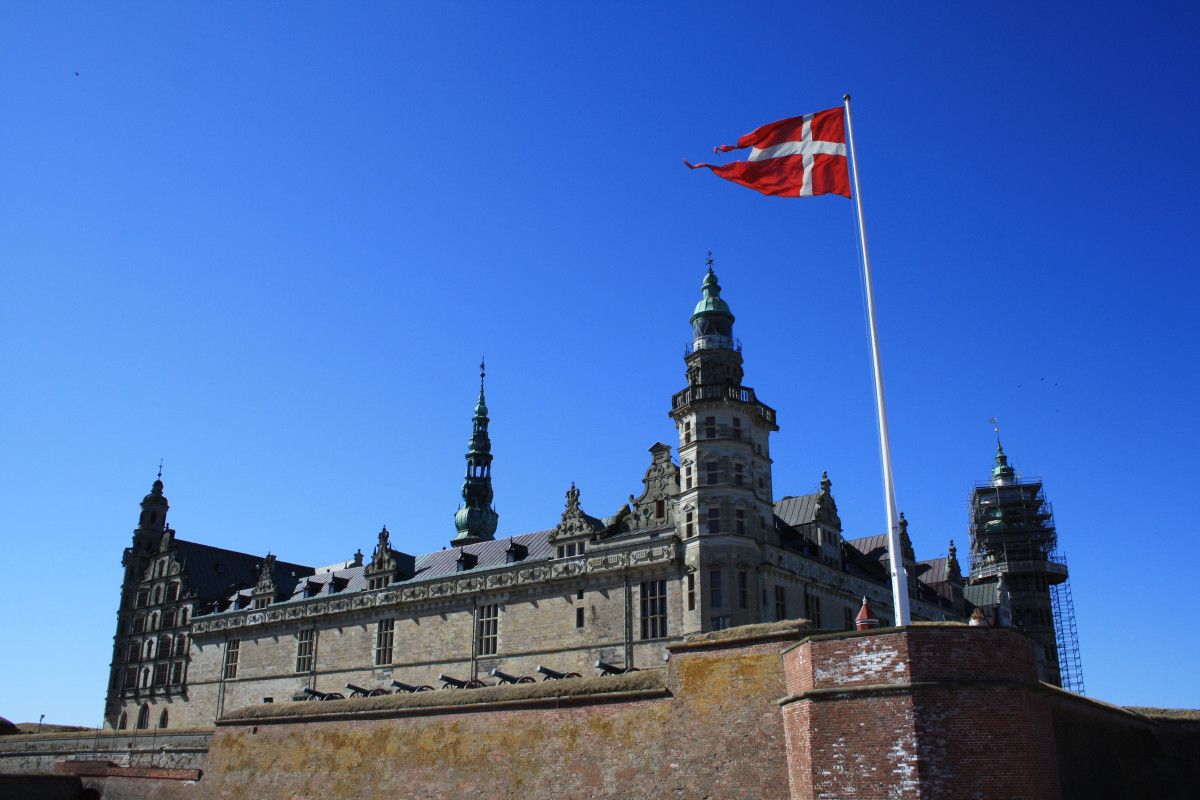“A lookout post at the Royal Danish Castle at Elsinore. It’s a cold night and Francisco is on duty. Another soldier, Bernardo, approaches. He stops as if he’s heard a sound coming from the audience, then cries out,” are the opening stage directions of ‘Hamlet’.
But they could equally apply to a scene in the 2020s, or at least up until the end of last year, when guards were still stationed to guard Kronborg Castle, where the play is set. From the Swedes, presumably!
A protocol shake-up overseen by Slots- og Kulturstyrelsen, the palaces and culture agency, means the guards are no longer required to be present at the castle. Instead, they will be on call.
Among the changes, which will save 1 million kroner a year, is the cessation of the daily raising of the Dannebrog – a decision that has caused great outcry among a few right-wing politicians, as for those approaching the country from the sea, the red and white flag has been a familiar site for over 400 years.
Flag is a national symbol, argues DF
Shakespeare’s midnight sentries Bernando and Francisco are joined on the battlements by Horatio and Marcellus, and it is the latter who three scenes later offers the immortal remark: “Something is rotten in the state of Denmark.” Dansk Folkeparti heartily agrees.
“It signals to ourselves and the outside world who we are as people. That should not be saved for a million kroner. That money must be found. The Dannebrog must of course fly at Kronborg. What signal does it not send to the Swedes?” questioned DF MP Mikkel Bjørn to TV2.
“It is about our history and our many wars against the Swedes. It is part of our self-understanding. It is completely over the moon to drop such a vital part of Danish cultural heritage and the traditions around Kronborg.”
In future, the castle will be monitored by a live video link watched by personnel based at the watch room at Amalienborg.
Culture minister asked to reconsider
Bjørn intends to bring it up with the culture minister, Jakob Engel-Schmidt, to hear “whether it can really be right that Danneborg should not weigh on one of our proudest cultural institutions”.
Additionally, Marlene Harpsøe, an MP for Danmarksdemokraterne, has tabled a question for minister, to which he has five days to respond.
It reads: “What does the minister think about the fact that Slots- og Kulturstyrelsen has abolished the flying of the Dannebrog at Kronborg Castle, and what does the minister intend to do to ensure that the Dannebrog is again flown daily at Kronborg?”
But perhaps the bigger question is whether somebody should wake up Holger the Dane? Traditionally, the statue, who lies asleep in the basement of the castle, will wake up on the day when Denmark is in real trouble to defend his mother country.















